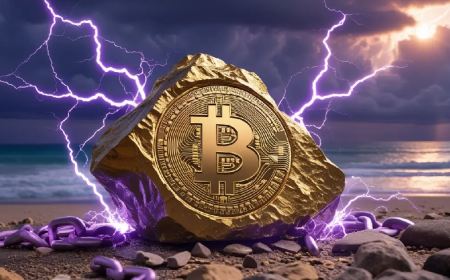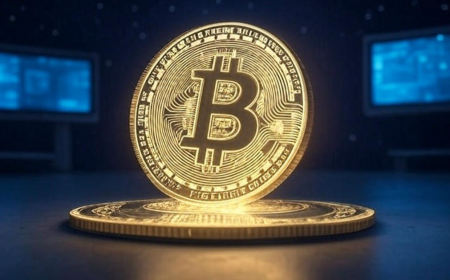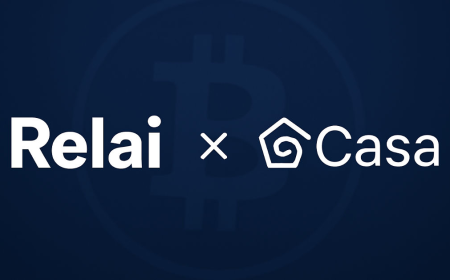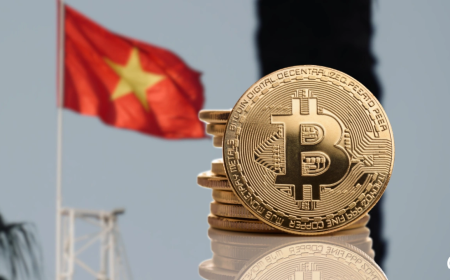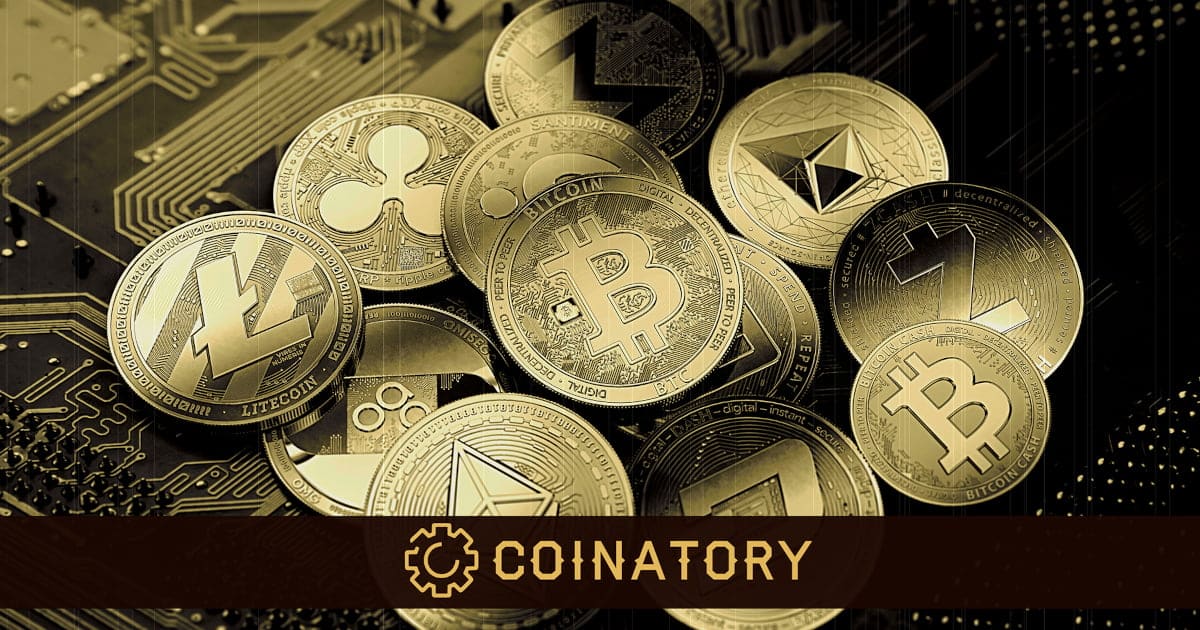This veteran health official watched Americans lose trust in science. How do we get it back?
Francis Collins has overseen some of the most revolutionary science of the last few decades. He led the Human Genome Project that sequenced the entire human genome by 2003, and then in 2009, he became director of the National Institutes of Health, where he served under three presidents and led the agency’s research on a […]
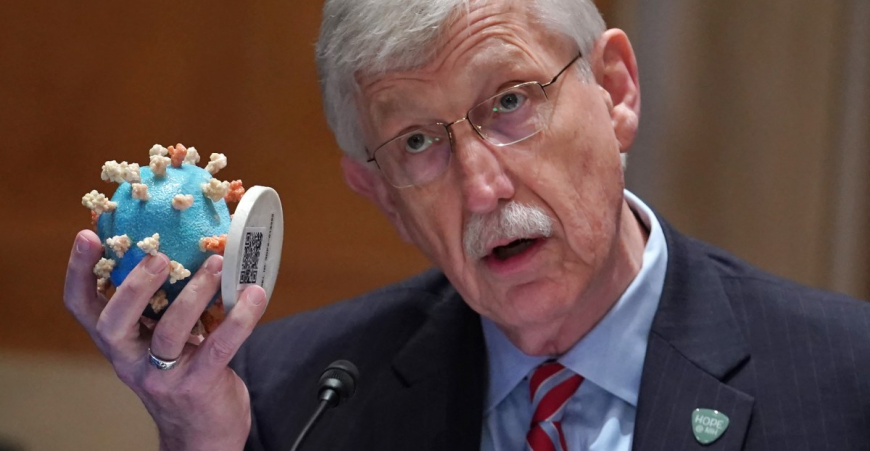

Francis Collins has overseen some of the most revolutionary science of the last few decades. He led the Human Genome Project that sequenced the entire human genome by 2003, and then in 2009, he became director of the National Institutes of Health, where he served under three presidents and led the agency’s research on a Covid-19 vaccine.
But nothing in his years leading biomedical research for the US government could have prepared him for the disruption at NIH over the past few months. Over 1,000 employees at the NIH were suddenly fired at the beginning of April. (Those firings are still being challenged in the courts, but as of now, the employees remain out of work.) Trump administration officials have barred researchers from studying certain topics like vaccine hesitancy or the health effects of wildfires.
“I had experienced transitions before, and those were bumpy sometimes,” Collins told me in a recent interview. “But I didn’t expect science to be under this kind of full-bore attack, which is really what happened almost immediately after inauguration day.”
In the past few months, Collins saw scientists placed under communications gag orders, restrained from speaking freely even when no media were present. “You were effectively muzzled,” he says.
Collins, who had stepped down as NIH director in 2021 and had taken over a lab studying diabetes, soon felt he could no longer do his job as a scientist should. He started to worry he might be pushed out. “So I pulled my folks together in a conference room. They didn’t know what was coming. And I told them, ‘By tomorrow night, I’m no longer gonna be here.’ And we all cried. I never thought it would end this way. My wife came to pick me up on that last Friday, and I just walked out of the building and got in the car and said, ‘I guess this is it. That’s how it ends?’”
Just four years ago, Collins was President Donald Trump’s NIH director. Now, in Trump’s second term, he’s resigning under pressure. How did we get from a world where the NIH was universally recognized as a jewel of scientific research to a world where the government is essentially tearing it down from the inside?
I spoke to Collins on Vox’s Unexplainable podcast about how so many Americans lost trust in science and how we might be able to get it back. Our interview has been edited for clarity and length.
I’m constantly hearing that Americans have lost trust in science. Is that fair to say?
I think it’s totally fair. You can look at all the surveys about trust. Americans have lost trust in almost every institution.
But I think it was more than that. I think Covid did a lot of harm to people’s trust in science because, first of all, it was a huge, disastrous experience for the world. There were days where thousands of Americans were dying. As one of those people who was communicating with the public about what we knew about the virus and what they might do to protect themselves, we were doing the best we could with the information we had, but the information was incomplete. So we often had to change recommendations over time because we learned more about the virus and about the pandemic, and people began to wonder, do these guys know what they’re talking about?
So suddenly this has become such a target for an attack: whether science is something that’s good for our country or not.
Your most recent book, The Road to Wisdom, is all about trust. If you were telling the story of the loss of trust and everything going on in the science agencies today, how far back would you start?
It depends on the particular demographic you’re talking about. I’m a person of faith, and certainly people of faith have tended to be among the most skeptical of science, and that goes back 150 years or more — the sense that maybe science is trying to do damage to our Christian faith. That was there certainly well before Covid.
But what group was most resistant to accepting the vaccines? It was white evangelical Christians. I’m a white evangelical Christian, so those are my people, but it broke my heart to see how that happened. And I think Covid did something, took what had been a tendency for science to be political and turned it into a really big deal. If you were a Democrat, you’re much more likely to get vaccinated than if you were a Republican. Does that make sense? Not in the slightest, but that’s how it was.
When it’s becoming clear that more than 50 million Americans aren’t getting the vaccine, one of the most remarkable scientific achievements in human history, did that tell you anything about the pursuit of science and how it works?
It certainly woke me up to the fact that we apparently had not done a very good job in explaining to people that when science is tackling some really hard problems and occasionally gets the wrong answer, it’s going to get self-corrected because science is about truth. Science is not just a bunch of people who are coming up with answers that they like. These are answers that aren’t gonna be sustainable unless they’re actually true. And maybe here’s also where I began to realize
That’s another problem that society has that I was unaware of in terms of its severity: the importance of truth, the fact that there is such a thing as objective truth. Not everybody shared that: “That might be true for you, but it’s not true for me.” I would hear people say that about things that were established facts, and that’s a road to destruction of a society if it becomes widespread. Unfortunately, it seems to be doing so right now.
It seems like you believed that all you had to do was develop the vaccine, get to the thing that worked, and then people would take it? Then there’s this whole other piece of convincing people that you and the scientific community at large didn’t do.
Yep. I was naive about science communication and how it works. And I was, without knowing to call it this, an adherent to the knowledge deficit model.
What does that mean?
That means that if you’re trying to communicate science to get somebody to make a decision, it’s because they’re missing knowledge, and you’re gonna provide that. You’re gonna fill their deficit, and then everything will be fine.
You just tell them: Here’s a fact. And now they believe the fact?
I’m an expert, here’s the fact, and then they’ll make the right decision.
But no, it doesn’t work that way, especially when there’s already skepticism and distrust. You’re seen as an elitist who maybe has an ax to grind or something you’re trying to put over on them, and you may even do more harm than good by going after somebody’s misunderstandings head-on. They’re just gonna dig their heels in more thoroughly.
I guess what I’ve learned is we need to do a lot more listening and really understand where people are coming from, and also be prepared to tell stories instead of going down the road with statistics. But that’s challenging: For a scientist, that sounds like an anecdote and I would never get away with that in the seminar room.
But this is not the seminar room, people. We need to actually find better ways to help people understand what we do.
You were in charge of the NIH during Covid. You were often the one communicating to the public. Are there things that you would do differently if you could do it over again?
I wish every time that myself or anybody who was putting forward a public health message would have started off saying, “Look, this is an evolving situation. We still don’t know answers to a lot of things we need to know about this pandemic. So what I’m gonna tell you today is the data we’ve got, but we might have to change that later when we get more information.” We almost never said that.
The other thing is our one-size-fits-all approach just didn’t feel like it made any sense to the public. People in rural communities, who were far away from the carnage that was happening in New York City or Washington, DC, as the virus was running wild, were left wondering: “Why do I have to close my business? I haven’t even seen any cases here yet.” I think we lost a lot of people in states that didn’t necessarily have heavy academic research centers, who couldn’t quite imagine how they should believe us because we didn’t seem like we understood what life was like on a small farm in Nebraska.
During Covid, my number one goal was to save lives. I’m a physician. I took the Hippocratic Oath. I assumed there were other people worrying about the economic effects of this and the effects on children’s learning when they were kept out of school. It didn’t feel like that was my thing. My thing was to try to keep people from dying. But it became clear to me that that may have been something I was a little bit wearing blinders about. Maybe those other factors about economic harms and harms to children’s learning should have been a bit more front and center to the conversations that I was part of.
So I understand looking back on it and saying, “Okay, it would’ve been more accurate to communicate the level of uncertainty.” To say to people, “This is evolving. We don’t know.” Do you think that would’ve led to a different outcome?
I don’t know. I wish we could do the experiment, and maybe we could figure out a way to do it in some controlled space.
But I would say 20 percent of the problem was the less-than-perfect communication of the science, and 80 percent of it was the deluge of misinformation and disinformation that contaminated the conversation to the point where a lot of people stopped listening to the actual facts.
There didn’t seem to be any penalty for stating something that’s absolutely false, though, and I haven’t heard anybody apologize for that.
When I think about your willingness to have difficult conversations, to accept responsibility for mistakes, it seems like this is something that most people are not doing. I’ve heard you mention maybe we could have something like a truth and reconciliation commission. Or a pandemic amnesty on a larger level, where people could really be open about their mistakes. Do you think that could have any effect?
You know, I proposed the idea of amnesty at an event and the audience blew up. They were not there. People are too angry.
On both sides?
On both sides. They’re feeling too hurt, too much harm has been done to them. So amnesty, I don’t think we’re there. Truth and reconciliation, people were okay with that. Because they can imagine that other people are gonna have to ask for forgiveness for what they did.
But right now, we’re so dug in. I hope that this truth and reconciliation option is out there right now. It doesn’t quite feel like people are ready to go there.
It seems to me like what we need is more people embracing uncertainty, more people talking about their mistakes. Whether it’s people with their friends who they disagree with, or whether it’s the highest scientists in our scientific agencies. How do we get there?
We’re a long way from there. When you’re in this circumstance where there seems to be a real pitch battle between the various tribes, it makes it hard for anybody to say, “I might be wrong.” The fact that I’ve been willing to say that has resulted in a lot of attacks, even from people who I thought were my friends. They said, “Oh no, you can’t show weakness like that.”
Well, yeah, we really do need to do that, but we need to all do it and not just expect a few people who are then gonna get whacked for it. It’s hard right now, and you don’t see a lot of that in our country.
If I were a young scientist and I wasn’t sure whether I should stay in the field, what would you say to me?
I would say you’re at a really paradoxical time because this is the most incredibly exciting moment for biomedical research. So many things are becoming possible that I would not have dreamed would happen in my lifetime. We’re on this exponential curve of gathering insights. So if that’s your dream to be part of, don’t give it up.
Now, the paradox is right at the moment, there’s a lot of negative things happening in the United States that seem to be threats. But the case here is so compelling that I don’t believe those facts can be suppressed for very long. You can already look at polls in which the American public says, “I don’t think they should be harming medical research.” That’s right there. Seventy-seven percent of Americans raise that point in one poll.
That’s people on both sides of the aisle. There’s some momentum there.
What's Your Reaction?












